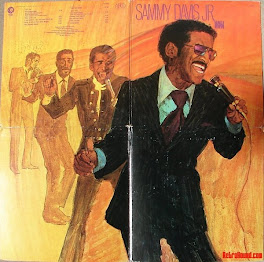When love enthralls and armies still march on
Rick and Ilsa toast with Veuve Cliquot the irony in the day.
As time goes by, it's never more or less than an island
of ripe blueberries, ample figs, and uniform boot marks.
We ironize, too, and coo our plans over wine,
hands intertwined on the escritoire in full light,
an isolate scene within the hearing of a clock,
snow melt hit by a rain barrage and a sound of horns.
The full-lit escritoire upholds the fervent hands
devoted to finding-out truth from exhilarated words --
slant rain enfilading the walkway slush,
exotic rhythm, bold piano surging a major key.
But extracting the sense from later punctured words
one stays for far too long in overcoat through drizzle
with alien beats, dismal tunes urging a minor key
as waiting rooms jam at desperate depots.
To scowl as the hat brim soaks to drooping
losing oneself to those with larger causes
while refugees disperse like burning lanterns:
old hopes a fleet of paper, fire, and smoke.
Losing oneself becomes the cause for losses --
time proves they're never less, and more than an island
where we fire the fleet and smoke old hopes
since love enthralls and armies still keep marching on.







































Truly,
ReplyDeleteIndeed,i do love Casablanca, and i do love " as time goes by" ,each time life broked me, this piano as an obsession sounded in my head.I didn' d dare to write a poem about this because i was frightened to spoil it.Then you wrote the poem and it' s splendid and you felt and you expressed the infinite nostalgia to have to resign to fate engaged.
I'm really touched by this text.
Isabelle.
Wonderful clip--those expressions on Bogie and Bergman don't even need words. And a very interesting piece, with it's escritoire image, and pantoumishness. You did an excellent job of disappearing the form while still laying your poem out on it like a scarf in the wind. "...slant rain enfilading the walkway slush,..." <- great line.
ReplyDeleteIsabelle,
ReplyDeleteLots of Casablanca-related stories -- mostly of my own imaginary making after the fact of a failed . . . relationship?
Not that one may not find embers still at the core of some writing.
To be honest, the poem began with a) the first line popping into my head; and b) the idea of fixing myself to a 'form' at the outset, in this case a 'pantoum', though not a rigid one.
Once love and war melded, the movie jumped in. Much of my time with this, aside from trying to find variation for the repeated lines, was to shake Casablanca off!
Not its power, but any literalness. I needed to continue the 'sense' of it, but not simply summarize it in a 'poetic' way.
That's why I switched to 'we' right away, and shifted to a general 'oneself'. Why I didn't use their names again, because they were to be the contemporary 'we'.
The imagery was consonant with Bogart and Bergman, but also with 'us' today.
I'm glad this 'hit' you. It's a potent film and I tried to respect it. It's meant something in my life.
Trulyfool
Joy,
ReplyDeleteYes. I was lucky to find that youtube clip of Sinatra singing to the movie scenes. The song is such a classic, and those film faces! If you explore youtube further, there's at least one clip where Ilsa shows up at Rick's club. I'd forgotten just how luminous Bergman looked.
As to form -- a favorite subject, it seems, we've engaged on -- experts and obsessives seem to glom onto it right away. Notice it, speak to it, judge on it.
If I were reading my own poem without having written it, I'm not sure I would have caught the varied lines. Maybe semi-consciously. Perhaps that's all form should do.
Maybe I can claim myself as a 'formalish' poet.
'Enfilading' was an angle, then a notion, then a mental deep-search until it became the word I knew I wanted. It was one of four or five 'last touches' that made the piece seem 'right' for me by the end.
Thank you for your sharp readership (and personality!)
Trulyfool
To scrowl as the brim hat soaks to drooping...losing oneself to those with larger causes....
ReplyDeletelarger causes seem to bring us off our islands...have us going to the mainland for a purpose larger than oneself, but why has Bogie and Bergman left us..still standing in black and white...that is what I want to know...bkm
Barbara,
ReplyDeleteIn the movie, of course, all the 'good' principals go off to fight the good fight.
And B and B have never left us, dead though they physically are.
As a pivot point here, I chose the moment of desolation when a lover does leave, even for 'those with larger causes' (or having found causes herself).
Losses don't fully go away, and may even enlarge.
I myself do know islands and mainlands, and among my chosen colors are black and white.
Thanks for resonating!
Trulyfool
My, my, my.....this was worth waiting for..! Exquisite!......and I hadn't heard The Lady Is A Tramp for years!
ReplyDeleteThis is the beginning of a beautiful friendship.
ReplyDeleteLena,
ReplyDeleteThank you!
Both for appreciating the poem and for listening to Sammy Davis's 'Lady'. (To be honest, I've got it playing periodically in my car, on the freeway, doing as close to fast as I can and listening as boisterously as my ears decently will allow).
Trulyfool
Tess,
ReplyDeleteHere's looking at you, kid.
TFool
TF, you took us on an exotic journey to Africa, the rages of war, the pain of love falling from the brim of a hat, and to the islands within ourselves. It was poignant, evocative, and altogether sublime. Thank you for this treasure. I will 'play it again,' TF, many times in my mind.
ReplyDeleteCher,
ReplyDeleteThe least I could do!
Trulyfool